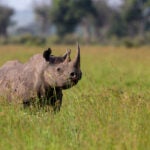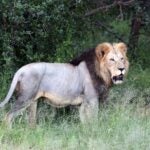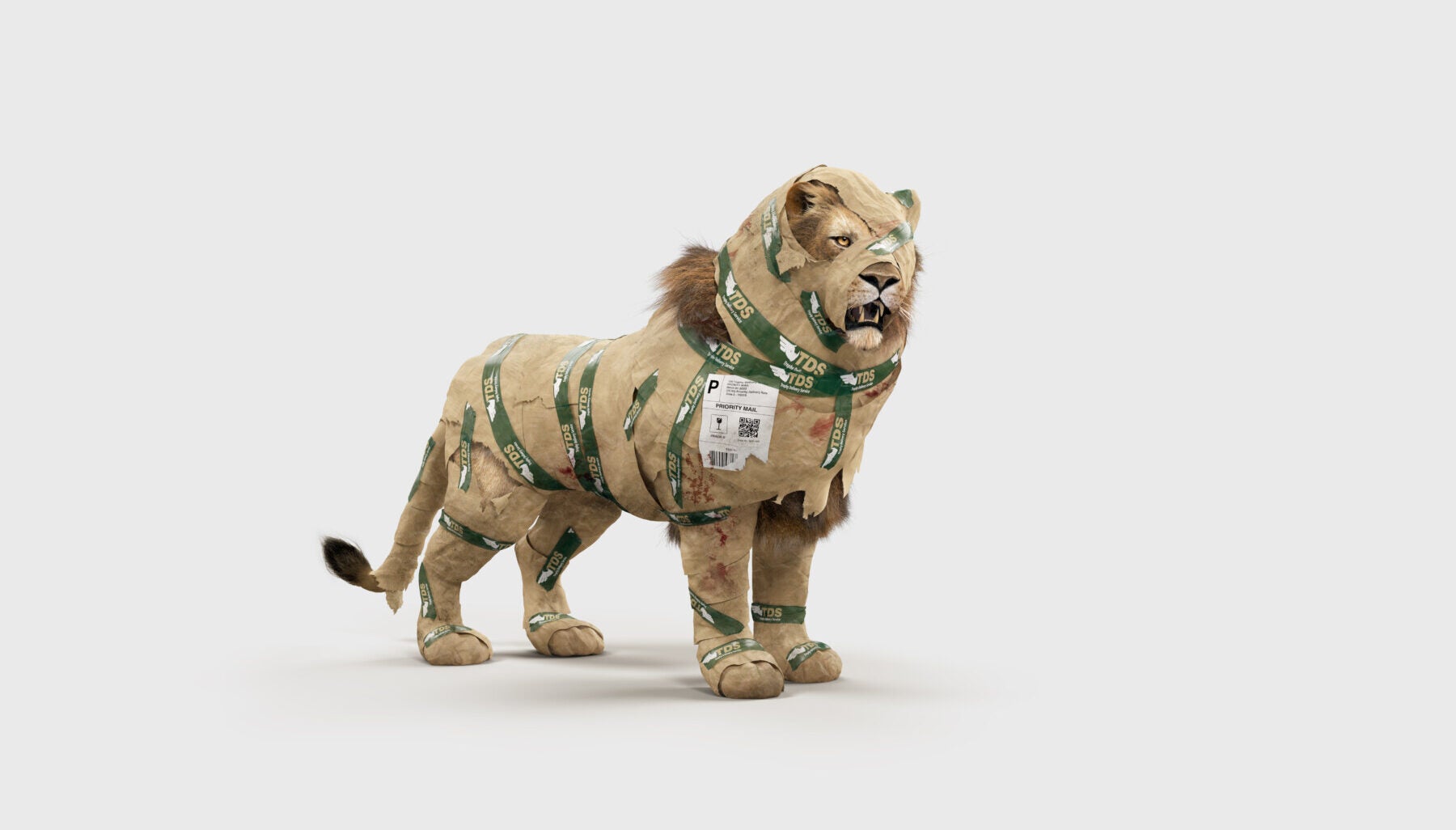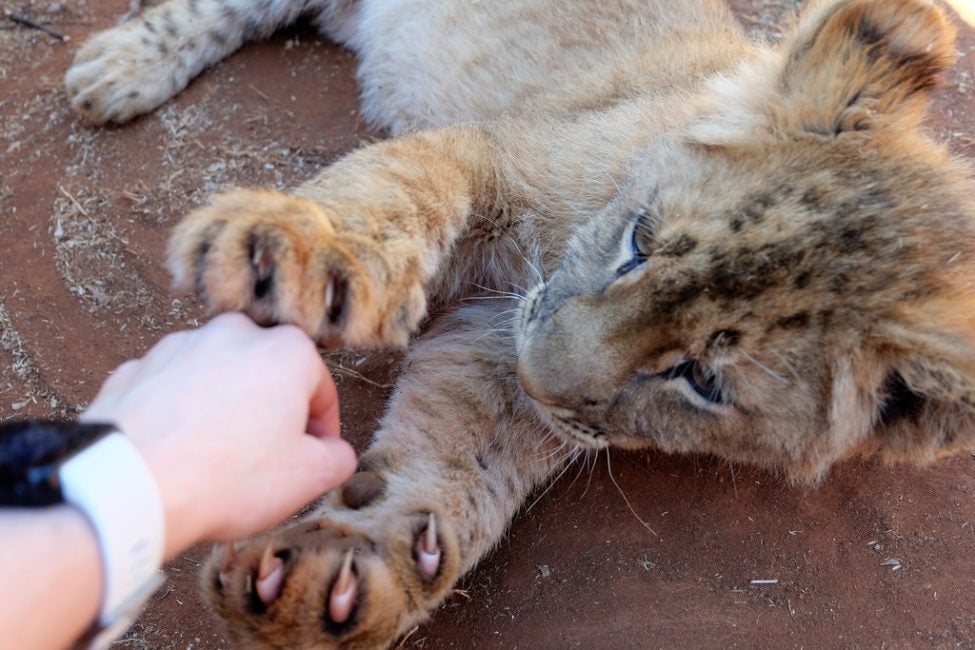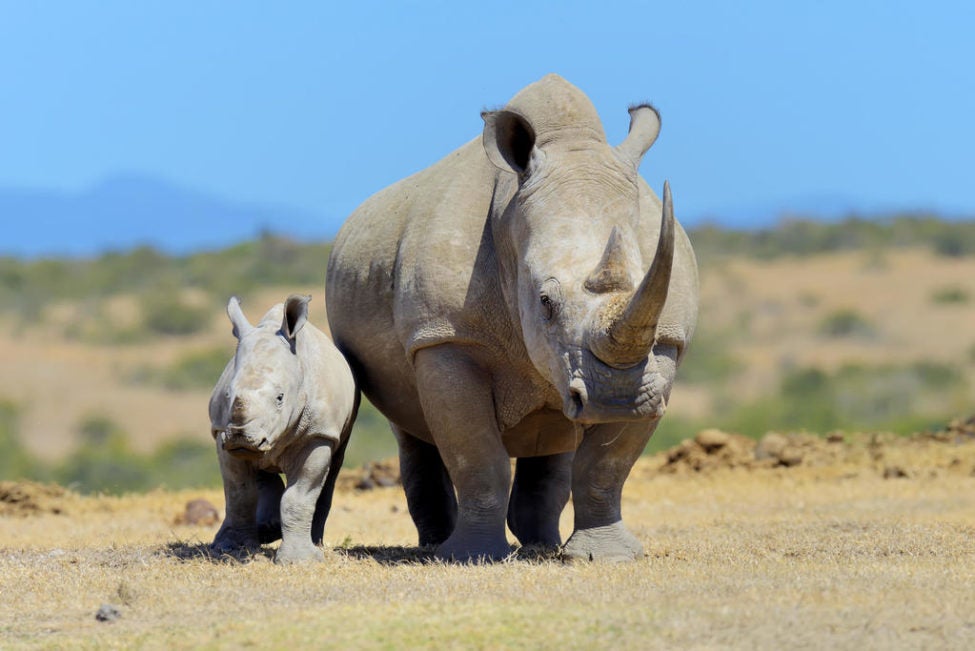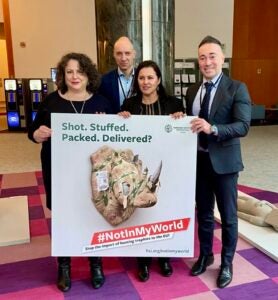
BRUSSELS—Yesterday, Humane Society International/Europe handed a petition signed by nearly 50,000 citizens from all over the world to the European Parliament’s Committee on Petitions, urging the EU to take action against the trade in hunting trophies. The petition offers concrete interim policy recommendations to strengthen existing EU rules regarding the import and export of hunting trophies.
Iconic species like lions, rhinos and elephants are killed for their parts and shipped to and from the EU, earning the EU the sad title of the second-largest importer of animal trophies in the world. It makes the European Parliament well placed to address the repeated failure of the EU to properly implement existing regulatory protections.
Dr Joanna Swabe, senior director of public affairs for Humane Society International/Europe, said:
“We greatly appreciated the chance to be able to use our speaking time in the Committee on Petitions to counter the European Commission’s contentious and hackneyed claims—in response to our petition—that ‘well-regulated’ trophy hunting has benefits for both wildlife conservation and the livelihoods of local communities. It is unfortunate that they have swallowed the Kool-Aid predictably served up by apologists for trophy hunting, rather than evaluating the mounting evidence that killing threatened and endangered species for sport is harmful to species’ conservation and can actually contribute to increasing wealth inequalities, rather than benefiting all members of local communities. We are disappointed that even the recently adopted revised EU Action Plan on Wildlife Trafficking also listed ‘well-managed trophy hunting’ as a form of sustainable form of income. We strongly contest this characterisation.”
While critical of this attitude, HSI/Europe still welcomes the recent commitment in the revised EU Action Plan on Wildlife Trafficking to apply greater scrutiny to imports of hunting trophies and be more transparent about decision-making concerning country-species combinations. The action plan also states that the Commission will consider extending the EU legal requirement for hunting trophies to be accompanied by import permits for more species. Such import permits provide the EU with important oversight over the imports’ compliance with regional and international laws that aim to protect species from overexploitation through trade. At present, the EU requirement for an import permit for hunting trophies only applies to species in Annex A of the EU Wildlife Trade Regulation and six additional species listed in Annex B: the African elephant, common hippopotamus, African lion, southern white rhinoceros, polar bear and Argali sheep.
While HSI/Europe welcomes this change as an interim step, the ultimate goal for the EU is to work quickly to restrict all hunting trophy imports of regulated species. It is a vital step to curb the demand for imperilled species’ parts and products, as well as for protecting animals like giraffes, polar bears and cougars from the compounding, extensive consequences of this cruel practice.
Last month, in its Resolution on the EU’s strategic objectives for the Convention of International Trade in Endangered Species COP19, the European Parliament urged the Commission and the Member States to “take immediate effective action in the framework of its commitments outlined in the EU biodiversity strategy to ban the import of hunting trophies derived from CITES-listed species.”
HSI/Europe’s petition to the European Parliament—as well as recent public opinion polls and our various submissions to Commission stakeholder consultations—highlights not only the urgent welfare, conservation and biological needs for these additional trade protections, but also the general public’s desire for the EU government to take immediate action to ban hunting trophy imports in line with a precautionary approach to species protection.
FACTS
- Petition No 0976/2021 on the necessity for EU action with regard to trophy hunting was submitted to the European Parliament in September 2021.
- The EU is the second-largest importer of animal trophies in the world, according to HSI/Europe’s report Trophy Hunting by the Numbers. Between 2016 and 2018, the EU was the largest importer of lion trophies globally. Trophies from at least 15,000 internationally protected mammals from 73 CITES-listed species were legally imported to the EU between 2014 and 2018, with a nearly 40% increase in trophy imports to the EU during this period.
- Legally obtained hunting trophies of the species listed under Annex A and six species under Annex B of the EU Wildlife Trade Regulation can only be imported into the EU after a Member State has issued an import permit and verified that such imports have been legally acquired and will not be detrimental to the conservation of the species. There is no transparent process for the issuance of such permits and non-detriment findings. Hunting trophies of all other species are exempted from this rule.
- As outlined in a recent report calling for a revision of the trophy hunting regime in the European Union, there is a long history of a lack of proper regulation and oversight when it comes to trade in hunting trophies. Even where trophy hunting is legal and follows management guidelines, there is evidence of population declines, indirect negative effects on populations, biologically unsustainable quotas, offtake of restricted individuals like breeding females and cubs, poor population estimates and monitoring, quotas assigned at the incorrect spatial scale, significant animal welfare concerns and a lack of transparency in data and policy and management decisions. A comprehensive ban on the import of hunting trophies of regulated species is a necessary precautionary approach to protect imperilled species.
- Various studies have found that trophy hunting does not provide meaningful employment opportunities or revenues for the majority of community members and can instead contribute to wealth inequalities. Community-based natural resource management approaches should not make the poor poorer and the rich richer and should instead focus on more ethical, sustainable and lucrative industry alternatives to trophy hunting.
ENDS
Media contact: Adeline Fischer, communications senior manager: afischer@hsi.org ; +49 17631063219


